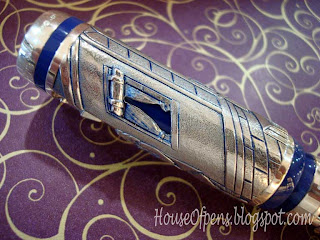We feel he was incredible to be able to create one of the greatest operatic masterpieces ever in such a short space of time.
Sadly to say, at its premiere in Rome, the opera was a flop
The work was not appreciate by public.
However, this unfavourable was later turned around by Paisielle support, who had written an opera using a similar theme. The subsequent performances of the opera scored the triumph it deserved. The qualities of the opera stem from Rossini's consistently strong composition, the finesse of the instrumental writing and the constant rhythm of the orchestra in support of the vocal line throughout. The opera was so good that it is impossible not to be swept up by the joyful atmosphere of the work and its irrepressible comedy, and not to mention the subtle and realistic characerization of the individual roles.
The role of Rossina, written for a coloratura muzzo-soprano, has often been performed by a high coloratura soprano.
What is the opera all about?
The poor student Count Alamviva has fallen with Rosina who is beautiful and rich. The pretty ward Doctor Bartolo, who wants to marry her himself for her money (rule to all evil).Count Almaviva is known to Rosina only under the assumed name of Lindoro. After a serenade and an exchange of letters, he disgiuses himself as a drunken soldier who has been ordered to stay there for shelter. He manages to sneak into Bartolo's house with help of the Figaro, who is Count's former servant and local barber ... for a compensation ...
No free meal as Mr. Horse once said ... getting execiting ...
As Rosina and Berta attempts to leave the house, she is met by the Count disguised as an intoxicated soldier. Frighten by the drunken man, Berta rushes to Bartolo for protection and he tries to remove the supposed soldier, but failed. The Count manages to have a quick word with Rosina, whispering that he is Lindoro and passing her a letter.
The watching Bartolo is suspicious and demands to know what is in the piece of paper in Rosina's hands, but she fools him by handing over her laundry list.
Bartolo and the Count start arguing and, when Basilio, Figaro and Berta appear, the noise attracts the attention of the Officer of the Watch and his men. Bartolo believes that the Count has been arrested, but Almaviva only has to mention his name to the officer to be released.
The watching Bartolo is suspicious and demands to know what is in the piece of paper in Rosina's hands, but she fools him by handing over her laundry list.
Bartolo and the Count start arguing and, when Basilio, Figaro and Berta appear, the noise attracts the attention of the Officer of the Watch and his men. Bartolo believes that the Count has been arrested, but Almaviva only has to mention his name to the officer to be released.
In the second act, he appears as Don Alonso, Deputy for Basillo, a music apprentice of Basilio’s who is there to substitute for Rosina’s music lesson. He explains to Bartolo that Basilio is very ill.
The Count pretends to give Rosina a music lesson. Figaro is there to give Bartolo his daily shave. Figaro sneaks off to find the key to Bartolo’s balcony so that they can unlock it and sneak Rosina out in the middle of the night.
Basilio unexpectedly shows up. Basilio is not really ill, but is convinced that he is, when the Count pays him off.
As the Count (in disguise) and Rosina go over the plans for her escape, Bartolo overhears them and drives everyone from the house.
He vows to marry Rosina that evening and rushes to get a notary to do so. He also shows Rosina the letter she wrote to "Lindoro", and convinces her that Lindoro is merely a flunky of Almaviva.
Bartolo also convinces Rosina that Lindoro is just a failed servant of the Count’s and that she should not be with him.
Later that evening, there is a great storm. The Count and Figaro sneak a the ladder into Bartolo’s house. The Count shows Rosina his true identity and their love is reconciled.
When Figaro sees people coming, the three try to escape back out the window, where they find that the ladder has been removed. Basilio arrives with a notary to marry Rosina and Bartolo.
The Count convinces Basilio to wed he and Rosina or receive two bullets in the head. When Bartolo arrives with the police, Rosina and Count Almaviva have already been married.
Montegrappa raises the curtain on the 2nd annual edition of the "Emozioni in Musica" writing instrument limited edition...well... It is the "IL Barbiere di Sivigbia" (The Barber of Seville).
In 1637, the San Casiano theater of Venice presented the very first opera for the paying public. Since then, opera belonged to audiences around the global.
This fusion of history and spirit will also be told through numbers.
The collection is composed on 1637 pieces to represent the year of the first performance at the San Cassiano theater, which comprises of 1000 fountain pens and 584 rollerball pen sterling silver and celluliod, 37 fountain pens in gold and celluliod, and 16 fountain pens in gold and celluloid with diamonds.
The pen is currently available at all authorized Montegrappa retailers, including Aesthetic Bay Pte Ltd, Fook Hing Trading and Cortina Watches Espace Millenia.
Montegrappa first annual edition of the "Emozioni in Musica" writing instrument limited edition, La Traviata, is available for sales at HOP(e)Markeplace.
Montegrappa first annual edition of the "Emozioni in Musica" writing instrument limited edition, La Traviata, is available for sales at HOP(e)Markeplace.




















No comments:
Post a Comment